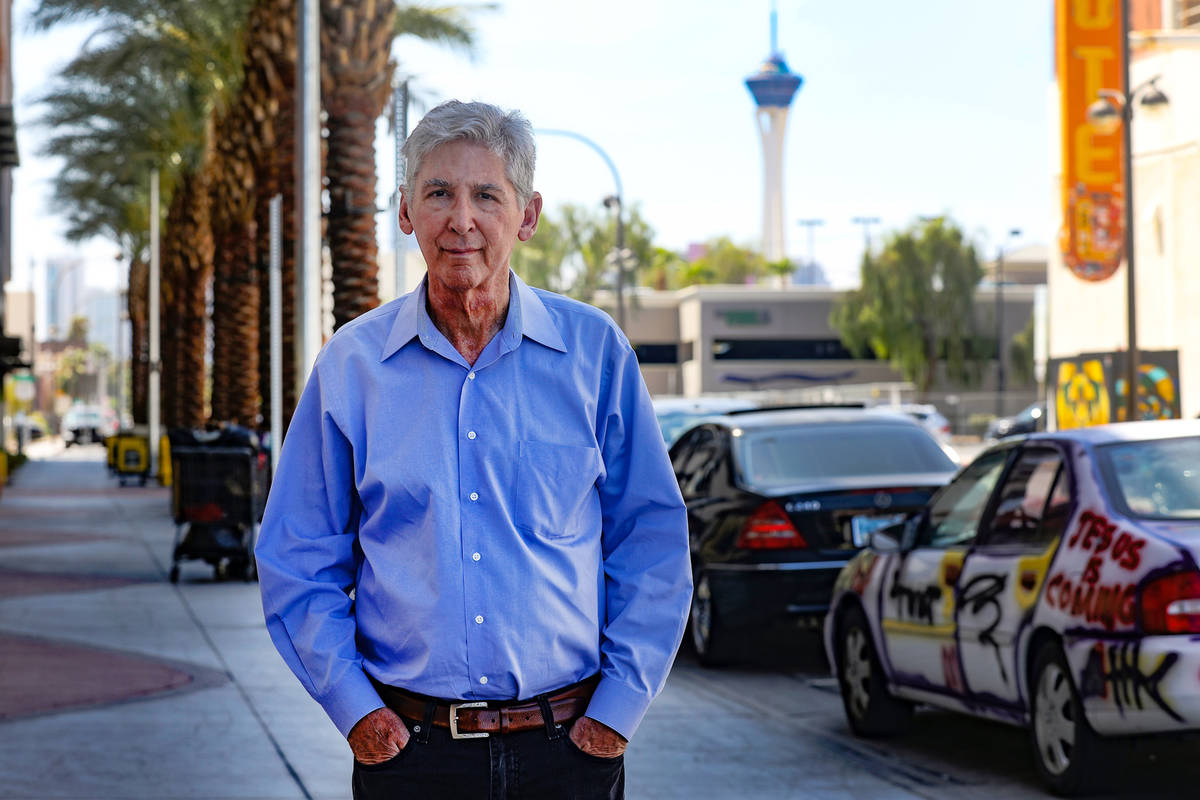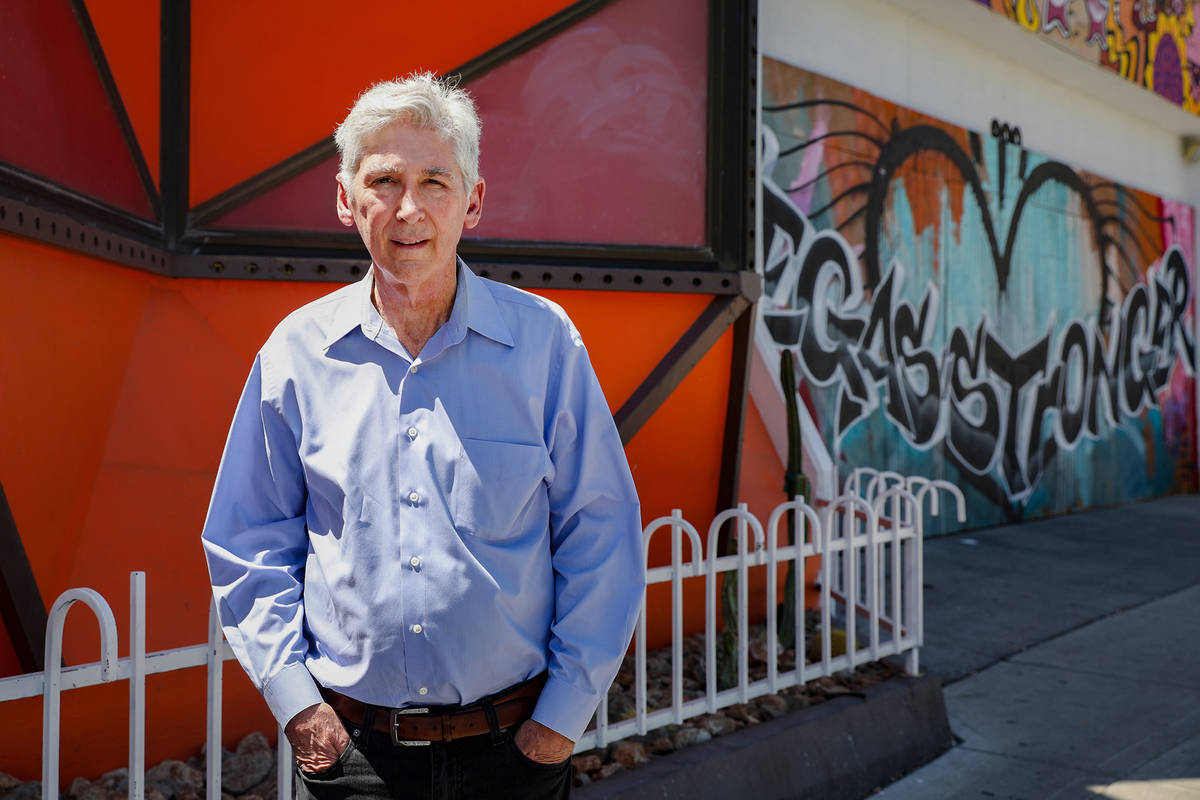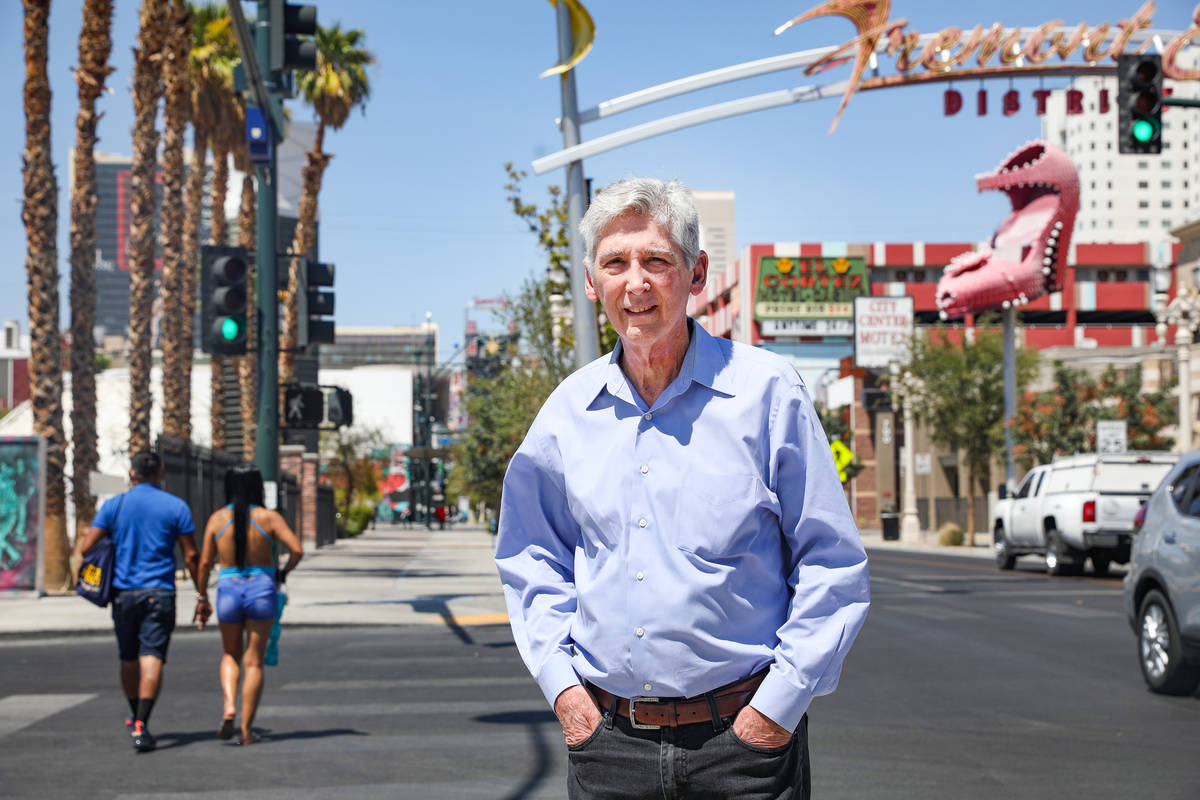Nevadans worry about future as enhanced jobless benefits set to end
The pandemic wreaked havoc on Alan Mendelson’s infomercial business but he was finally stepping back in front of the camera after signing five new clients in June.
New work meant an income, so the Las Vegas host and producer thought he could stop filing for his weekly unemployment benefits. He soon realized he was wrong.
“They’re gone. They’ve all canceled or they didn’t renew (their contracts),” said Mendelson, who went back to filing his weekly claim this month. “I’m starting over again and it’s hard to get new business now because businesses are scared.”
Nevada is experiencing another surge of COVID-19 cases that could thwart the state’s economic recovery at a time when the safety net of unemployment benefits is expected to end Sept. 4. The enhanced benefits, offered through a series of federal stimulus bills, have helped thousands of Nevadans through the pandemic but their expiration has many like Mendelson facing the edge of a financial cliff.
It’s estimated that 9.2 million Americans will abruptly lose benefits by Labor Day — more than six times the number of those who faced the unemployment cliff after the Great Recession. About 1.3 million filers were affected when federal benefits expired in December 2013, according to a report from American Enterprise Institute Senior Fellow Matt Weidinger.
He reported that the sudden cutoff of benefits is the result of a “little-noticed policy change” in the American Rescue Plan that removed the allowance for a gradual phaseout of benefits.
“Such soft phaseouts allow those already receiving benefits to continue collecting them for a few weeks after the eligibility door has closed to new recipients. That spreads out the end of benefits, softening the blow of a program’s expiration on individuals and the local economy,” according to Weidinger.
Life raft
Nevada’s economy shut down overnight on March 15, 2020, when Gov. Steve Sisolak mandated the closure of casinos, restaurants and other nonessential businesses.
The state’s unemployment rate skyrocketed from a seasonally adjusted 3.7 percent in February 2020 to 29.5 percent in April, which made Nevada No. 1 for the highest unemployment rate in the country.
“The largest impact was felt in Las Vegas with an unemployment rate over 33 percent and a decline in employment near 21 percent,” Nevada’s employment office Chief Economist David Schmidt said in a news release at the time.
Nevada’s unemployment rate didn’t drop below double digits until November 2020, when the unemployment rate fell to 8.7 percent.
But a series of federal stimulus bills, including the Coronavirus Aid, Relief and Economic Securities Act, was a lifeline for Nevadans. It included an unprecedented number of enhanced unemployment benefits such as an additional $600 a week, later reduced to a weekly $300 payment; a 13-week extension for those who exhausted their benefits; and for the first time, unemployment benefits for independent contractors, self-employed and gig workers.
Henderson resident Adonna Connell said the benefits helped her stay afloat, especially in the early months when the additional $600 weekly payment meant she was making close to her previous salary as an optician.
“It was fine because I thought we were all going back to work in a couple weeks — we all thought we were going back to work — and then I got an email and that was how I found out that all of us senior people didn’t have jobs anymore,” she said.
Connell said the end of her benefits has her feeling stressed and scared about the future, especially since it’s been difficult finding a new job.
She said her husband, a truck driver, recently started working 20 hours less a week because his firm specializing in landscaping has hit a slow season. Connell described the couple’s financial situation as now hitting “a perfect storm.”
“We’re back to what’s not getting paid and robbing Peter to pay Paul,” she said. “How creative can I be in the kitchen? I go grocery shopping on my Target (credit) card and now we’ve got this bill but yes, we have food on the table.”
End of benefits
The federal benefits for Nevadans will end at midnight on Sept. 4, according to the Nevada Department of Employment, Training and Rehabilitation. They include:
— Pandemic Unemployment Assistance, the program giving unemployment benefits to independent contractors, self-employed and gig workers.
— Federal Pandemic Unemployment Compensation, offering an additional $300 weekly payment to regular and PUA filers.
— Pandemic Emergency Unemployment Compensation, which gives extended benefits for claimants who have exhausted their regular unemployment compensation.
— State Extended Benefits, offering an extra 13 weeks of federally funded benefits for those who have maxed out their regular unemployment benefits during periods of high state unemployment rates.
“After the week ending Sept. 4, only regular unemployment insurance benefits will be available,” DETR said in a statement.
This means independent contractors and self-employed workers such as Mendelson, who are enrolled in the PUA program, will no longer qualify for unemployment insurance. And regular filers will need to meet pre-pandemic eligibility requirements starting Sept. 5.
Snail’s pace
Connell, the former optician, said she’s exasperated by the job search. Her previous employer in Henderson opted to refill the senior-level positions with new hires as opposed to bringing its workers back.
She’s applied for jobs, but often the pay is significantly lower than her previous salary, making it difficult to cover basic monthly expenses that have already increased, such as rent.
“I’ve been offered $9 an hour. It costs me more than that to keep up my continuing education so I can continue to do my job effectively,” said the 20-year veteran. “And it’s not like nobody wants to work but how many jobs do you have to have to afford an apartment?”
Peter Norlander, associate professor at Loyola University Chicago, said research shows those on long-term unemployment, defined as more than 26 weeks, take the longest to recover jobs and their earnings.
“It’s not like they’re magically going to get new jobs tomorrow,” said Norlander. “What’s going to happen is there’s going to be a decrease in overall spending, which would have a negative effect on growth rates. And more than just the economic effects, people who have nothing — no job, no income — that’s going to increase other types of problems like homelessness, alcoholism, drug abuse.”
Mendelson said he can survive on his pension and Social Security benefits but would rather work. He can earn at least double his weekly unemployment benefit of about $700 from his TV infomercial business. But it’s been difficult landing new clients in recent weeks with many telling him they’ll “get back to you.”
He suspects the growing number of COVID-19 cases has businesses fearing another shutdown, causing them to tighten up spending.
“I’ve been going online looking for other work, other marketing jobs. It’s impossible to get hired,” said Mendelson. “I may be unemployable because of my age. I’m 69 years old, but I can’t even get hired for a $12-an-hour job.”
Mendelson said he’s applied to 55 jobs through Indeed and Zip Recruiter and more than half are still listed as available with some positions posted as far back as March.
“All this crap about jobs being available — they may be available, but they’re not hiring,” he said. “They just are not hiring.”
Contact Subrina Hudson at shudson@reviewjournal.com. Follow @SubrinaH on Twitter.



















